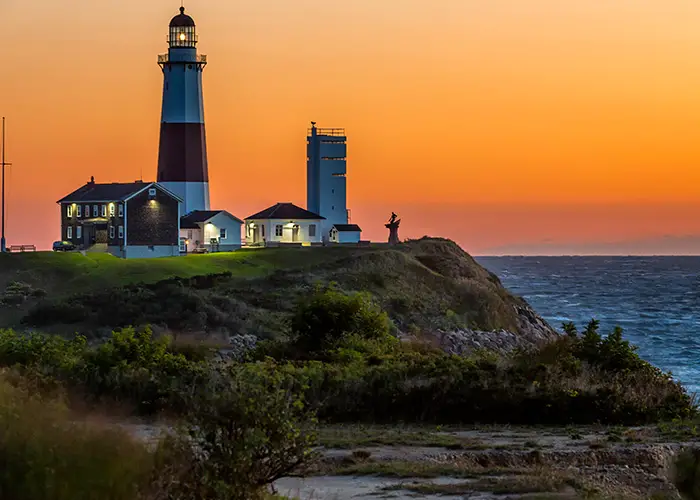
When the New York State Assembly recently adjourned in the early hours, it marked the end of the 2024 legislative session. But even during a session that ran a day longer than originally scheduled, the legislature did not do enough to advance and address the many environmental challenges New York faces.
“Maintaining the status quo is not good enough,” said David Ansel, vice president of water protection for Save the Sound. “There just wasn’t enough progress made at a critical time when we need to improve the way we protect water quality in Long Island Sound and all our waterways, turn off the tap on contaminants and plastic waste, and address the clear and present dangers of climate change.”
Perhaps the most significant positive step was the passage of the Suffolk County Water Quality Restoration Act, which will reduce nitrogen pollution in the county’s groundwater, surface waters and the Sound by creating a funding mechanism to support the expansion of sewer coverage and upgrade of the 380,000 inadequate septic systems and cesspools. Not only has the bill already been signed into law by Governor Kathy Hochul, the County Legislature is progressing toward adding a referendum to the November ballot.
“The sooner we can get this passed by the voters of Suffolk County, the sooner we can start leveraging federal funding to do the critical work of improving the county’s outdated wastewater infrastructure,” said Ansel. “We thank Assemblymember Fred Thiele and Senator Monica Martinez for sponsoring this important bill, which passed both houses with near-unanimous bipartisan support.”
Another win came Friday when the Horseshoe Crab Protections Act passed both the state Senate and Assembly. The legislation, which still must be signed by Gov. Hochul, would prohibit the taking of horseshoe crabs for commercial and biomedical purposes, preventing the further depletion of the population of this keystone species in the Long Island Sound ecosystem.
“Horseshoe crabs have been virtually unchanged for 450 million years and survived five mass extinctions, but humans have brought them to the brink in just a few hundred years,” said Ansel. “It’s past time to stop their overfishing. Connecticut had already enacted legislation to protect horseshoe crabs, but its effectiveness was limited without bi-state protections. Now that New York has followed suit — thanks to the efforts and leadership of the bill’s sponsors, Assemblymember Deborah Glick and Senator Brady Hoylman-Sigal — all of Long Island Sound can be a safe habitat for this vulnerable species.”
“Addressing stormwater was one of our top priorities this session. We worked closely with our partners to spotlight the degrading impact stormwater has on water quality, and the benefits of utilizing green infrastructure and nature-based solutions. The Senate was responsive; next year, we must continue our work to get the Assembly on board,” said Ansel.
Save the Sound thanks the leadership in the Senate and the Assembly for what they were able to do this session, as well as all the legislators who sponsored, supported, spoke up for, and led the effort to pass legislation that would protect public and environmental health.




















